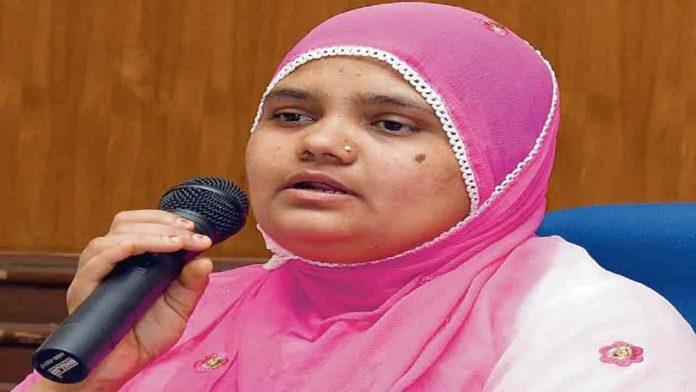Bilkis Bano’s case was one of the most brutal ones of the 2002 Gujarat riots. She was brutally gangraped during the communal violence that followed the Godhra train burning incident and 11 of the accused men were given life imprisonment. But in surprising turn of events, they were granted remission by Gujarat in August 2022.
The state government took the decision in the light of an order by the Supreme Court which said the state’s remission policy would apply in the case and it should consider such applications based on the Gujarat government’s policy of 1992.
While hearing a batch of petitions challenging the early release of Bilkis Bano’s rapists, the Supreme Court recently questioned the Gujarat government’s decision to remit their life sentence and set aside recommendations by the CBI. The Court questioned the Gujarat government over selective application of its remission policy for 11 life-term convicts in the Bilkis Bano case and said it was on “thin ice” on the issue. However, Additional Solicitor General SV Raju said that the offence by them was not in the rarest of rare category as they were not awarded the death sentence and instead were given life imprisonment.
The bench said the opportunity to reform must be given to all and not just a few. It asked Raju that since in this case life imprisonment was the second highest punishment after death penalty, how was remission given to them. “Why is the policy of remission being applied selectively? The opportunity to reintegrate and reform should be given to every convict, not a few,” it said.
Raju said that the state government was bound by the effective order of the Supreme Court which had said that its remission policy would apply in the case and it should consider such applications for remission based on the Gujarat government’s policy of 1992. Raju said that all compliances with the 1992 remission policy of Gujarat were done legally and with due procedure. The senior law officer also narrated how Section 432 (power to suspend or remit sentences) of the Criminal Procedure Code was applied to these convicts. During the hearing, the bench also asked the state government what was the need to have the opinion of the district judge of Godhra when he did not try the accused.
The bench asked Raju how far the remission policy was being implemented in cases where the person had completed 14 years of the sentence, and whether the same policy was implemented in all such cases. The Court also sought details about the composition of the jail advisory committee (there was criticism that there were two BJP MLAs on the committee). The bench further asked Raju whether the CBI also had a negative opinion when its view was sought on the remission of the convicts.
On August 24, Raju, appearing for the Gujarat government, reiterated before Justices BV Nagarathna and Ujjal Bhuyan that all necessary compliances had been done before granting remission to the 11 convicts. Advocate Rishi Malhotra, appearing for one of the convicts, told the bench that the scheme of the 1992 Gujarat remission policy did not require a unanimous or majority decision. In India, the government may prematurely release convicts under the remission policy after considering their good conduct, reformation, period of sentence undergone and health.
Articles 72 and 161 of the Constitution as well as Chapter XXXII of the CrPC, 1973, provide for the suspension, remission and commutation of sentences of convicts. Article 72 empowers the president and Article 161 empowers the governor to grant pardons, suspend, remit or commute the sentence of a person convicted of any offence. Chapter XXXII of the CrPC from Section 432 to 435 lays down the procedures for the suspension, remission and commutation of sentences.
The primary object of remission is to take into consideration certain aspects of the case which did not arise during proceedings in a court of law. The executive can show a convict mercy by way of remission, suspension or commutation as per law. The process for granting remission and suspension of a sentence under Section 432 of the CrPC involves the state seeking the opinion of the court that gave the sentence and the court providing relevant records. The government can then decide whether to grant or reject the application
for remission.
The power of remission is an executive action and should be exercised fairly and not arbitrarily. Section 433A of the CrPC restricts the power of the president and governor such that they can’t commute death sentences to less than 14 years of life imprisonment.
The Supreme Court in State of Haryana vs Mahender Singh and Others (2007) observed that even though no convict has a fundamental right of remission or shortening of sentence, the State in exercise of its executive power of remission must consider each individual case keeping in view the relevant factors. Further, the Court was also of the view that a right to be considered for remission, keeping in view the constitutional safeguards guaranteed to a convict under Articles 20 and 21, must be held to be a legal one.
—By Abhilash Kumar Singh and India Legal Bureau


